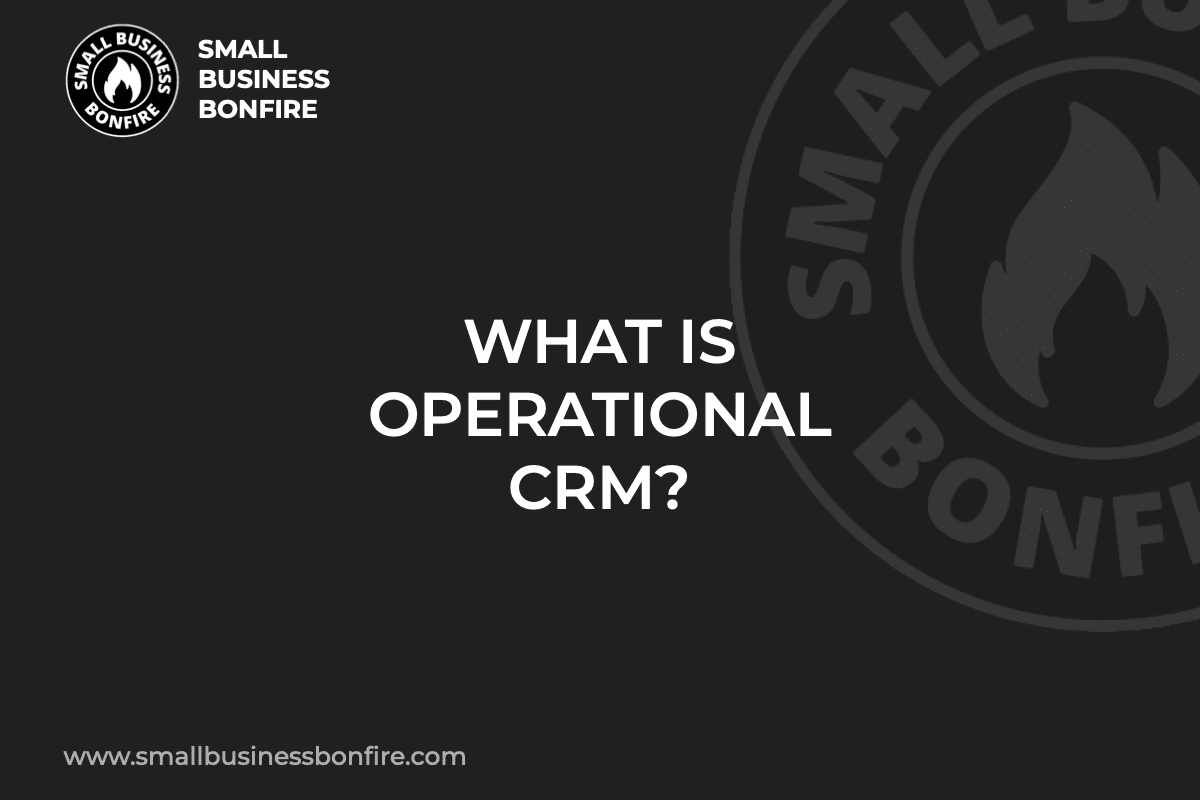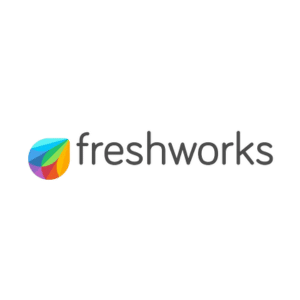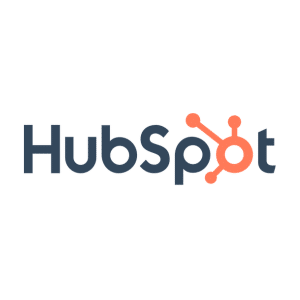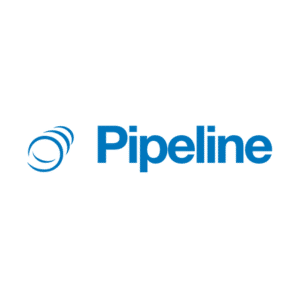If you’re a small business owner, you probably understand that managing customer relationships can be challenging (I know it was challenging for me initially).
My name is AJ, and I have over a decade’s worth of experience building and growing my own business!
After a successful exit, I started Small Business Bonfire (SBB) to aid other entrepreneurs and small business owners in their growth journey.
At the agency, we (and our clients) used dozens of CRMs and implemented several customer relationship strategies.
So if you’re ready to learn more about operational CRMs, keep reading!
Key Takeaways
- An operational CRM helps manage all your business data entry
- It can assist any marketing team in creating successful marketing campaigns
- This CRM-type sales reps and managers improve customer service functions
- Sales teams can organize the sales process with operational CRM applications
Related Reading: Best CRM for Small Businesses
SBB Featured Partners
Types of CRM (Customer Relationship Management): Overview
Throughout my career, I have tested many different CRM software and discovered the three main types you can choose from.
Each has its own benefits and drawbacks, so it’s important to know the difference before making a decision.
Although, the type of CRM you choose will depend on your business needs and the specific goals you want to achieve.
However, it’s also worth noting that many business owners prefer combining all three types of CRM to create a more comprehensive solution that addresses all of their customer management needs.
Let’s briefly review the three types of CRM!
Operational CRM
Operational CRM systems are software applications that focus on automating and improving the day-to-day operations of your business.
It’s designed to help businesses with streamlining customer interactions, sales processes, and customer support activities.
You can think of it as your go-to tool for streamlining your business operations and keeping your customers happy.
Collaborative CRM
The main objective of a collaborative CRM system is to enhance communication and collaboration among different teams in an organization.
This means that everyone involved in the customer experience is on the same page regarding their customer interactions.
With this type of CRM, sales, marketing, and customer service teams can easily share information, documents, and insights with each other.
Analytical CRM
An analytical CRM mainly analyzes and interprets customer data to gain more insight into their behavior, preferences, and needs.
This software uses advanced analytics and reporting tools to identify patterns and trends that can help businesses make intelligent decisions about customer engagement, marketing strategies, and product development.
What Is an Operational CRM?
As mentioned, an operational CRM system is a software solution designed to help businesses automate and optimize their customer-facing operations.
It can manage consumer data, send automated messages or emails, track sales performance and opportunities, and store contact details in one central location.
The ultimate goal is to streamline business processes to serve customers more efficiently and effectively.
Operational CRM systems typically include tools like:
- Sales forecasting
- Lead management
- Data management
- Contact management
- Marketing automation
- Campaign management
This software allows you to capture, store, and analyze customer data, helping you make more informed decisions about managing your customers.
Most importantly, it can help you establish more meaningful relationships by personalizing customer interactions, leading to increased sales and customer loyalty.
By leveraging the features of an operational CRM, you can easily access these data and insights at any time and from anywhere.
This makes it much easier to identify opportunities, respond to customer inquiries, and measure performance.
Features of an Operational CRM
An operational CRM tool offers several essential features to help you gain insights into your customer’s behaviors and preferences.
While at the agency, I found that the following features were vital for scaling and growing the business.
Marketing Automation
One of the most critical features of operational CRM software is marketing automation. This technology allows SMBs to streamline their marketing efforts and reach out to customers in a targeted way.
With this feature, business owners can automate repetitive tasks like lead nurturing, email campaigns, social media posts, and other promotional materials.
By automating these marketing processes, companies can save time, reduce costs, and increase the effectiveness of their marketing efforts.
Sales Automation
Another important feature is sales automation, which enables businesses to automate many of the time-consuming manual tasks involved with the sales process.
This includes lead management, customer segmentation, sales forecasting, and sales pipeline management.
With an operational CRM, sales teams can easily track interactions, leads, and deal status in real-time, freeing up their time to build long-lasting relationships and foster more meaningful engagement with existing customers.
Customer Service Automation
Lastly, customer service automation is a must-have feature for an operational CRM.
This feature can help any customer service team simplify and automate their customer service activities, such as:
- Managing Customer Inquiries
- Solving Complaints
- Issue Resolution
- Providing Support
Through automating these customer service solutions, businesses can respond more quickly to customer issues and provide better support to improve the customer experience while saving time and reducing errors.
What Are the Benefits of an Operational CRM?
If you’re looking to enhance your business operations and improve customer satisfaction, you may want to consider implementing operational CRM software. This type of software solution can bring numerous benefits to your SMB with ease.
Process Automation
As previously discussed, the main benefit of operational CRM tools is process automation.
This helps businesses amp up their business processes, including sales, marketing, and customer service, making them more efficient and effective.
Not only does this save your team time, but it also ensures that your processes are standardized and consistent.
Increased Employee Collaboration
With customer information stored in a central database, all departments can access the same customer data in real-time, allowing them to work together to provide a better experience.
This strengthens communication and cooperation and promotes a deeper understanding of customer needs and behaviors.
Additionally, these systems allow businesses to track customer purchase histories and preferences, enabling them to offer personalized service and tailored marketing campaigns.
Better Customer Satisfaction
Another significant advantage of good operational CRM software is that it improves customer satisfaction levels.
By leveraging the data collected through various touchpoints, businesses can gain deeper insights into customers’ preferences and needs, allowing them to deliver a more specialized and tailored experience.
This personalized approach can result in an increase in loyal customers, higher customer retention rates, and overall customer engagement levels.
Increased Deal Close Rate
With an operational CRM in place, companies can track, monitor, and analyze their interactions with customers, gaining valuable insights into their behaviors and preferences.
By using the software’s automated lead scoring and nurturing tools, sales reps can prioritize leads more likely to convert and deliver the right content to them.
This can lead to more specific and effective sales strategies, increasing the likelihood of closing more deals within the sales cycle.
Increased Deal Flow
Additionally, an operational CRM platform helps business owners increase their deal flow.
By automating various processes such as lead management, customer segmentation, and sales forecasting, these systems can enable companies to handle a larger volume of deals effectively.
Moreover, it also provides detailed analytics that makes it easy to identify patterns and trends in customer behavior, allowing any sales team or marketing team to respond to market changes more efficiently.
Better Reporting
By implementing an operational CRM, businesses can easily pull data on everything from consumer interactions to sales metrics and marketing campaigns.
This data can then be used to compile comprehensive reports that provide clear insights into the company’s health and what areas require improvement.
Plus, with more accurate reporting, business owners can quickly identify bottlenecks and opportunities for growth, making it easier to develop more effective strategies.
Less Information Silos
Finally, operational CRM software can greatly impact a business by reducing information silos.
By integrating data from different touchpoints, businesses can comprehensively view customer wants and needs.
This allows for smoother collaboration across departments, which can result in better overall service and happier customers while also enabling teams to focus on high-value activities and increase productivity.
How Does an Operational CRM Work?
An operational CRM works by collecting customer data from various channels, such as social media, email, and website traffic, and centralizing it in a single database.
This allows businesses to create a complete and comprehensive view of their customers, including their preferences, purchase history, and communication history.
With this system, you can empower your team to work smarter, respond faster, and make better decisions that drive growth and improve the bottom line.
Operational CRM vs. Analytical CRM
While operational CRM software enhances everyday business operations, an analytical CRM is geared more toward data analysis and strategic decision-making.
It helps businesses to better understand their customers by analyzing client data, such as buying habits, preferences, and behavior.
This type of CRM system is designed to assist business owners with making informed decisions, developing target marketing strategies, and building stronger relationships with their customers.
Operational CRM vs. Collaborative CRM
On the other hand, a collaborative CRM differs from an operational CRM by improving interdepartmental collaboration and communication within a business to solve problems and better serve customers overall.
It enables businesses to share information, coordinate activities, and build relationships based on trust and transparency.
This CRM type involves sharing data and insights across departments and empowering employees to work together to provide a unified and seamless customer experience.
Operational CRM Examples
As an experienced business owner, I have several real-world examples of operational CRM that other entrepreneurs can learn from.
Each example highlights the benefits of operational CRMs and how effective they can be for any business based on any situation.
Let’s dive into different examples to learn more about how operational CRM software can be used in various scenarios!
Operational CRM Sales Example
First, let me give you an example of how operational CRM software can boost sales.
Imagine you own a small clothing boutique, and you notice that a particular customer always purchases items related to fitness and workout wear.
There are many different ways you can leverage operational CRMs to improve your sales in this scenario.
Prospecting
For instance, you can use this system to analyze the customer’s data to create more targeted marketing campaigns and promotions, which could be anything from a promotional offer for fitness apparel or a personalized message about the latest releases in your store.
This way, you can effectively reach out to them with personalized content that will drive them back to your shop for their next purchase!
Pipeline Management
Additionally, you can efficiently manage your sales pipeline by implementing an operational CRM to create automated lead scoring and nurturing processes to target this customer with offers related to fitness apparel and accessories.
Through the use of automated tools, you can quickly identify if the customer is more likely to convert and prioritize them for follow-up.
This will speed up the entire process of closing deals and help boost your bottom line in no time!
Sales Activity Tracking
With an operational CRM in place, you can also track the customer’s history and use that data to send marketing emails and promotions related to fitness apparel.
This way, you can provide personalized recommendations and build a stronger relationship with the customer, ultimately increasing the likelihood of future purchases.
Plus, with an operational CRM tool, you can easily track metrics such as sales and customer demographics to analyze your performance and make data-driven decisions.
Operational CRM Marketing Example
Now, let’s look at another example of how an operational CRM can benefit your business—marketing.
Suppose you run a digital marketing agency, and you need to get in front of more new customers. You can easily automate different campaigns and promotions to cater to distinct customer segments.
This way, you can quickly target the right customers and send relevant content to drive more conversions.
Welcome Campaign
For example, you can use an operational CRM to create automated welcome campaigns and provide a seamless onboarding experience for new clients.
With this system, you can easily send personalized emails with different content depending on the customer’s interests and preferences.
This will not only make it easier to capture leads but also improve the customer journey in the long run.
Win-Back Campaign
In addition, operational CRM software can be used to develop and launch win-back campaigns for inactive customers.
You can track which customers haven’t been active in a while and reconnect with them by sending them personalized messages with special offers and discounts tailored to their purchasing habits and preferences.
By doing this, you can reengage these customers and encourage them to become regular buyers again, bringing them back into the fold.
Up-Selling Campaign
Lastly, you can use this system to create up-selling campaigns to boost your revenue by promoting additional products and services to existing customers.
For instance, you can track customer data such as buying behavior and purchase history to identify opportunities for up-selling these services or products.
This way, you can provide specialized recommendations and offers catering to each customer’s specific needs and interests to drive more conversions.
Operational CRM Service Example
Finally, let’s review how operational CRM tools can help companies provide better customer service.
Let’s pretend you own a small landscaping business.
With an operational CRM, you can simplify the process of customer relationship management with automated requests and inquiries.
This system can help you track customer conversations and provide personalized responses quickly.
Feedback Reports
For instance, you can use operational CRM software to capture customer feedback through surveys and reviews.
This way, you can better understand customers’ needs, wants, and preferences and gain insights into their overall experience with your business and employees.
In turn, this information will enable you to assess customer satisfaction levels and identify areas for improvement quickly.
Standardized Email Responses
You can set up automated email messages to provide more personalized customer responses.
With this system in place, you can ensure that the same response is sent for each inquiry, create appointment reminders to ensure customers don’t forget about their upcoming appointments with your company, and ensure consistent customer service across your business.
This will help you quickly target the right customers, send relevant content that will help drive more conversions, create a better customer experience, and strengthen relationships with existing clients.
Self Service Options
Furthermore, you can also use an operational CRM to provide customers with self-service options.
For example, clients can use the self-service customer portal online or with a mobile app to schedule appointments, view their account history, and even pay their bills.
This way, customers can quickly access information related to your products and services without contacting your customer service team.
Not only does this provide your customers more control over their experience with your business, but it also frees up your staff to focus on other important tasks.
How to Choose an Operational CRM
If you’re considering implementing an operational CRM tool into your business, there are some important factors you should keep in mind before making a final purchase.
Decide on the Features You Need
First and foremost, you should start by listing the essential features you absolutely need.
Think about these questions:
- Are you looking for a system that can handle customer service requests, manage sales interactions, or both?
- Do you need it to integrate with other tools, like your email marketing platform or accounting software?
- Are you looking for analytics and reporting capabilities?
Be honest about what you need, and don’t be swayed by flashy add-ons that won’t benefit you in the long run.
Once you have your list of must-have features, start researching different providers and comparing their offerings.
Look for reviews, case studies, and testimonials from businesses in your industry or with similar needs to better understand what each system can do.
Additionally, remember to consider factors like cost, ease of use, and customer support when making your final decision.
Understand the Limitations of Your Team
It is also vital to understand your team and their limitations. After all, what works for one company might not work for another.
Before making any decisions, assess your team’s current skill set and ability to adapt to new technology.
Look for a CRM platform that offers easy-to-use interfaces and intuitive navigation to ensure that onboarding and training don’t take up too much of your team’s time.
It’s also important to consider your organization’s size and budget for implementing a CRM system. Don’t overspend on features and capabilities that your team won’t need or use.
Take the time to carefully evaluate your options and choose a system that will help your team work more efficiently and effectively while meeting your budgetary needs.
Test Before You Buy
Finally, test out different operational CRM platforms before making a final purchase and evaluate each based on your specific business needs.
Almost all vendors offer free trials or demos, so you can get hands-on experience and see how the system works.
During this time, take advantage of the opportunity to ask questions and evaluate how intuitive the platform you’re testing is for your team members to use.
This will give you a better idea of whether the platform suits your needs.
Again, search out different customer reviews and testimonials for the particular CRM solution you’re considering.
Doing this will give you an idea of how satisfied other businesses are with the CRM software’s performance, reliability, and customer service.
Operational CRM Software
Over the years, I have personally tested and used several different operational CRM software for the digital agency. During this period, I discovered some of the best CRM software solutions for any business!
Below are two of my top favorite CRM tools!
HubSpot CRM
Next, let’s talk about HubSpot CRM!
What Is HubSpot CRM?
HubSpot CRM is an all-in-one customer relationship management solution that also offers a range of powerful features designed to help SMBs manage their sales, marketing, and customer support activities.
With it, businesses can effortlessly track leads, automate their sales processes, and deliver personalized content to their prospects and clients.
The software is also incredibly user-friendly and easy to use, making it the perfect option for SMBs who want to quickly and easily implement a powerful CRM solution without sacrificing their valuable time or resources.
Consider reading our detailed HubSpot CRM Review to find out what the SBB team thought about this CRM solution!
HubSpot CRM Pricing
HubSpot CRM offers users a free forever plan and three paid pricing options (monthly or annually), depending on their needs.
The annual plans include the following:
- Free Tools: $0 free forever
- Starter CRM Suite: $50/month
- Professional CRM Suite: $1,781/month
- Enterprise CRM Suite: $5,000/month
HubSpot CRM Pros and Cons
Like SugarCRM, HubSpot has many pros and cons to consider.
HubSpot CRM Pros
- User-friendly interface
- Third-party integration
- Perfect for scaling businesses
HubSpot CRM Cons
- Limited customization options
- Higher-tiered plans are more expensive
Monday.com
Now let’s go over Monday.com!
What Is Monday.com?
Monday.com is an innovative project management software that can help SMBs optimize their workflow and customer relationship management processes.
However, this platform isn’t just your average CRM tool—it’s also a comprehensive work management solution that enables teams to collaborate, manage tasks, and stay on top of their projects with a centralized and user-friendly interface.
It makes creating custom boards, setting deadlines and dependencies, automating routine tasks, and tracking the progress of projects in real-time easier for business owners.
Furthermore, Monday.com is a highly flexible and configurable platform that can adapt to your specific business needs and preferences.
Check out our comprehensive Monday Review for more information about this software solution.
Monday.com Pricing
Monday.com provides five different pricing plans at annual or monthly rates for up to 3 or more users.
These are the pricing options at the annual rate:
- Free Plan: $0 free forever for 2 users
- Basic Plan: $8/month per user
- Standard Plan: $10/month per user
- Pro Plan: $16/month per user
- Enterprise Plan: Custom pricing
Monday.com Pros and Cons
Finally, let’s take a look at the benefits and drawbacks of Monday.com.
Monday.com CRM Pros
- Easy to use
- Customizable
- Built-in time tracking features
Monday.com CRM Cons
- Slow customer support response times
- Limited features available with low-tiered plans
Closing Thoughts
An operational customer relationship management system is an invaluable tool for SMBs.
By leveraging the power of modern technology, you can gain a valuable competitive edge in your industry and take your business to the next level.
With the right CRM platform and mindset, success is just a few clicks away.
So whether you want to attract new customers, retain existing ones, or grow your business, an operational CRM can help you achieve your goals!
Are you interested in implementing an operational CRM into your SMB?
Do you have any questions about the differences between collaborative, operational, and analytical CRMs? Let us know in the comments below!
Newsletter Signup
Join The Leads Field Guide Newsletter for tips, strategies and (free) resources for growing your leads, and closing more deals.




